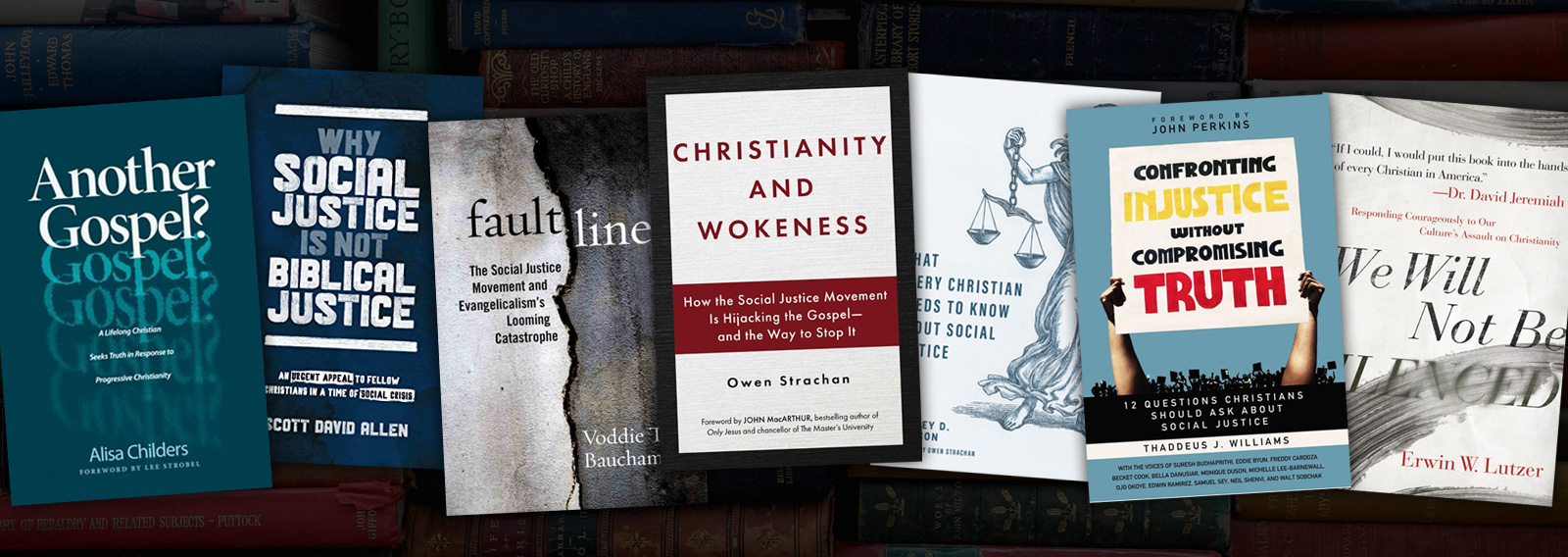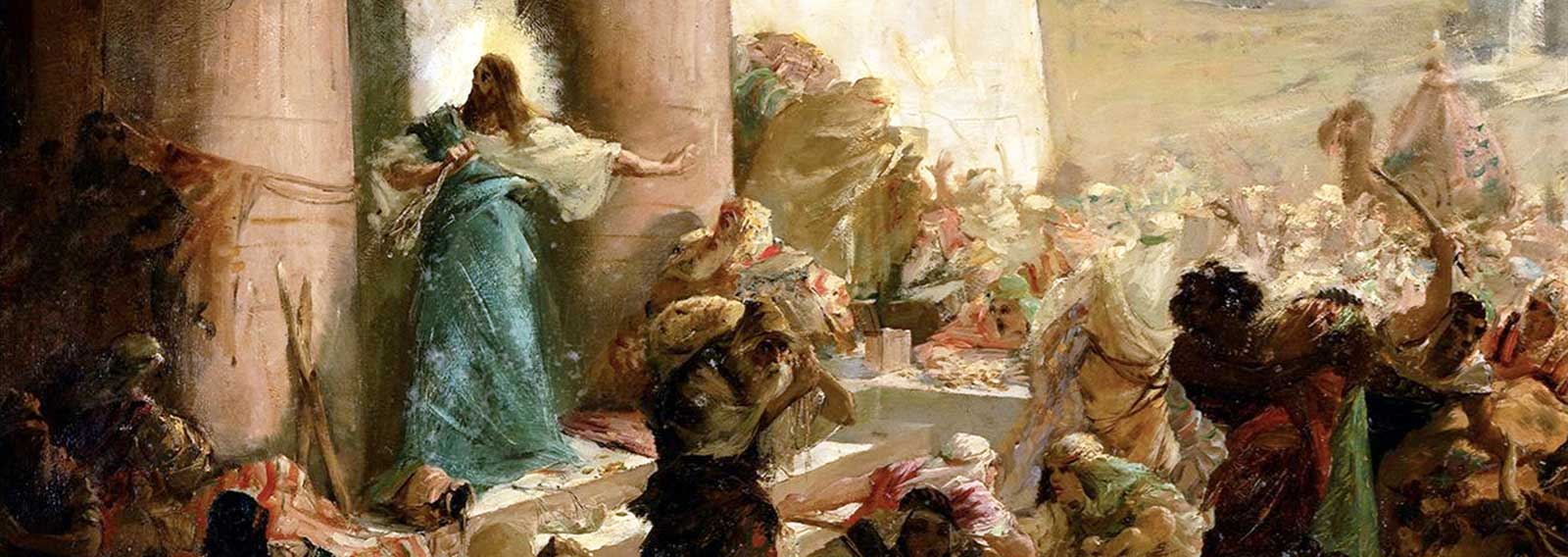When theological liberalism was wreaking such havoc a century ago in America, Presbyterian theologian J. Gresham Machen penned a very important volume in 1923 called Christianity and Liberalism. In it he argued that modern liberalism is not just a different sort of Christianity; in fact, it is not Christianity at all. I have often written about Machen and this vitally significant – and still fully relevant – book. See here, for example.
Sadly theological liberalism is still very much with us and is now making major inroads in evangelicalism. And as I have argued before, often we find theological liberalism and political liberalism walking hand in hand – not always, but often enough.
If you are into leftism and liberalism there are countless books out there that you can run with. And if you are a religious lefty, there are also plenty of titles available. Here I want to look at the religious left, and related areas: woke Christianity, progressive Christianity, and the so-called Social Justice Warriors.
There are plenty of books defending all this, but if you are looking for critiques, coming from a conservative theological and political frame of reference, here are some titles you need to be aware of. They are all fairly recent, since the assaults on evangelical understandings of these matters are somewhat recent as well.
There have been some earlier titles that also discussed things like the religious left and the matter of social justice. They would include:
- Billingsley, Lloyd, The Generation That Knew Not Josef: A Critique of Marxism and the Religious Left. Multnomah, 1985.
- Erickson, Millard, The Evangelical Left. Baker, 1997.
- Hayek, F. A., The Mirage of Social Justice, vol. 2 of Law, Legislation and Liberty. University of Chicago Press, 1976.
- Hayek, F. A., Social Justice, Socialism and Democracy. Centre for Independent Studies, 1979.
- Nash, Ronald, Freedom, Justice and the State. University Press of America, 1980.
- Nash, Ronald, Poverty and Wealth: The Christian Debate Over Capitalism. Crossway Books, 1986.
- Nash, Ronald, Social Justice and the Christian Church. Mott Media, 1983.
- Nash, Ronald, Why the Left is Not Right. Zondervan, 1996.
- Nash, Ronald and Eric Beversluis, Economic Justice and the State: A Debate. Baker, 1986.
- Schaeffer, Franky, ed. Is Capitalism Christian? Crossway Books, 1985.
The above authors – except for Hayek – are evangelical Christians. And of course, there would be numerous books that were penned earlier on contrasting biblical Christianity with Marxism and socialism. But as mentioned, with the progressive Christian movement coming to the fore of late, and with woke Christianity even impacting and infiltrating much of evangelicalism, a number of new books have appeared to challenge their take on things.
Here are 20 fairly new books on these issues which are well worth consulting. I have all of them except the one by Robles which will first come out in December. And as far as I can tell, all the books are authored by evangelicals (except for Mering, Novak, and Adams who are Catholics). With each book I offer just a short quote from each one. Here then are my top 20:
Allen, Scott David, Why Social Justice Is Not Biblical Justice: An Urgent Appeal to Fellow Christians in a Time of Social Crisis. Credo, 2020.
The inroads that ideological social justice is making into the evangelical church need to be recognized and exposed for the good of the church, and the good of the broader society the church exists to serve. Biblical justice is far too important to leave undefended in the face of this stealthy attack from a nonbiblical worldview masking itself behind biblical words and language.” (p. 16)
Baucham, Voddie, Fault Lines: The Social Justice Movement and Evangelicalism’s Looming Catastrophe. Salem Books, 2021.
Those belonging to the social-justice crowd present themselves as the only ones pursuing justice, to the exclusion of all who disagree with their assessments—who, by that definition, are pursuing injustice. Perhaps the most troubling aspect of the current struggle is that it mischaracterizes Christians that way too. On one side are ‘compassionate’ Christians who are ‘concerned about justice.’ On the other are ‘insensitive’ Christians who are ‘not concerned about justice.’ This is wrong.” (p. 5)
See my review of this important book here.
Childers, Alisa, Another Gospel? A Lifelong Christian Seeks Truth in Response to Progressive Christianity. Tyndale, 2020.
Today, many of the most popular Christian authors, bloggers, and speakers are progressive. Entire denominations are now filled with those who identify as such. Yet many other Christians sit in pews every Sunday completely unaware that their church has adopted progressive theology.” (p. 8)
Day, Vox, SJWs Always Double Down. Castalia House, 2017.
I treasure truth, beauty, and God. Social justice places lies before the truth, ugliness before beauty, and Man before God. Social justice is not a good thing in any way, shape, or form; it is the antithesis of all that is good, and right, and true. It is evil, and therefore we must stand against it.” (xv)
Day, Vox, SJWs Always Lie. Castalia House, 2015.
The goal of this book is to show you how SJWs operate, teach you how to see through their words, explain how to correctly anticipate their actions, and give you the weapons you need to successfully thwart their inevitable attempts to disqualify you, discredit you, and destroy your reputation.” (p. 6)
Harris, Jon, Social Justice Goes To Church: The New Left in Modern American Evangelicalism. Ambassador International, 2020.
Fifty years after progressive seeds were sown, their fruit has grown into a tree within the soil of modern mainstream evangelicalism. Institutional evangelical responses to political situations, such as efforts to normalize homosexuality, provide a path to citizen benefits for foreign migrants, accept government restrictions during the Covid-19 quarantine, support Black Lives Matter, etc. mirror the same kind of responses given by elderly veterans of the first progressive evangelical push.” (p. 13)
Jensen, Dan, A False Kind of Christianity: A Conservative Evangelical Refutation of Progressive Christianity. Westbow Press, 2017.
I, from the very outset, want to make it clear that this movement is destructive rather than progressive, and that it goes far beyond the boundaries of orthodoxy as well, thus making it anything but truly Christian. . . . I am thoroughly unconvinced that PC really is all that new. I believe that for the most part it is simply a regurgitated Social Gospel/mainline American Protestantism with a strong postmodern bent, which essentially makes it just one facet of liberal Protestantism.” (ix, xiii)
Johnson, Jeffrey, What Every Christian Needs To Know About Social Justice. Free Grace Press, 2021.
Christianity and social justice have antithetical starting points. Christianity is founded on the core presuppositions that there is a God who has communicated to us what is right and wrong. Social justice, on the other hand, is founded in worldviews – Marxism and critical theory – that outright reject that basic truth.” (p. 2)
Kruger, Michael, The Ten Commandments of Progressive Christianity. CruciformPress, 2019.
Each of these commandments is partially true. Indeed, that is what makes this list, and progressive Christianity as a whole, so challenging. It is a master class in half-truths that sound appealing on the surface until you dig down deeper and really explore their foundations and implications.” (p. 6)
Longshore, Jared, ed., By What Standard? God’s World . . . God’s Rules. Founders Press, 2020.
[A textbook] defines social justice as ‘the elimination of all forms of social oppression.’ … It is precisely at this point that I fear the sleight-of-hand comes in that results in many Christians being duped. Because the question that must be answered is this: Who determines who the oppressed are? And what does it mean to seek justice for them? Or, as we should again ask, by what standard?” (p. 10: from Ch. 1 by Tom Ascol, “Hollow and Deceptive Philosophies”)
Lutzer, Erwin, We Will Not Be Silenced. Harvest House, 2020.
I write not so much to reclaim the culture as to reclaim the church…. I want to inspire the church to courageously stand against the pressures of our culture that seek to compromise our message and silence our witness. This is not a time for us to hide behind our church walls, but rather, to prepare ourselves and our families to stand bravely against an ominous future that is already upon us.” (pp. 36-37)
Mering, Noelle, Awake, Not Woke: A Christian Response to the Cult of Progressive Ideology. TAN Books, 2021.
[Wokism] is an ideology with fundamentalist and even cult-like characteristics that is on a collision course with Christianity. It is not only destructive, but incoherent. It is a war of words against the Word. It is a revolution which elevates will over reason, the group over the person, and human power over higher authority. What is rejected – reason, the person, and authority – are the three characterisations of the Logos himself.” (p. 9)
Miles, Lucas, The Christian Left: How Liberal Thought Has Hijacked the Church. BroadStreet, 2021.
In a society where inclusion is the main objective, Christianity stands in stark contrast. For Jesus, relationship with God was never the choose-your-own-adventure story that the Christian Left would like for it to be. Instead, Jesus outlined a deliberate and solitary path that leads to righteousness. This only confirms the fears of the Christian Left regarding the message of Christianity: participation in the body of Christ (and, consequently, the church) is by nature exclusive; that is it includes only those who have received the salvation that Jesus offers and have humbly submitted their lives to his lordship.” (pp. 14-15)
Novak, Michael and Paul Adams, Social Justice Isn’t What You Think It Is. Encounter Books, 2015.
‘Social justice’ is one of the terms most often used in ethical and political discourse, but one will search in vain for definitions of it. Because of its fuzziness and warmth, everybody wants to share in it. There is a whole band of Catholics calling themselves ‘social justice Catholics.’ But they rarely give you a forthright definition of social justice, or an explanation of how their view differs from other views of social justice that are widely held.” (p. 15)
Robles, AD, Social Justice Pharisees: Woke Church Tactics and How to Engage Them. Morgan James Faith, 2021 (due out in December).
Strachan, Owen, Christianity and Wokeness: How the Social Justice Movement is Hijacking the Gospel – and the Way to Stop It. Salem Books, 2021.
Today, the Church faces a new challenge. Like liberal Protestantism, which denied the historic truthfulness of the faith, supernatural miracles, and a sin-cleansing atonement for individual sinners, wokeness is not merely a different form of Christianity, a remixed version that fits fluidly with conservative evangelical faith. Built on Critical Race Theory (CRT), wokeness uses theological language and even the very system of Christian theology, albeit without any need for grace or God…. Wokeness, in the clearest terms, is not Christianity at all.” (p. 3)
See my review of the book here.
Vicari, Chelsen, Distortion: How the New Christian Left Is Twisting the Gospel and Damaging the Faith. Frontline, 2014.
Peek behind the curtain of some ‘hip’ or ‘progressive’ evangelical churches, past the savvy technology and secular music, and you will find more than just a contemporary worship service. You will find faith leaders encouraging young evangelicals to trade in their Christian convictions for a Gospel filled with compromise. They’re slowly attempting to give evangelicalism an ‘update’ – and the change is not for the good.” (p. 1)
Williams. Thaddeus. Confronting Injustice without Compromising Truth: 12 Questions Christians Should Ask About Social Justice. Zondervan, 2020.
‘Seek justice’ is a clarion call of Scripture, and those who plug their ears to that call are simply not living by the Book. But the Bible’s call to seek justice is not a call to superficial, knee-jerk activism. We aren’t commanded to merely execute justice but to ‘truly execute justice.’ That presupposes there are untrue ways to execute justice, ways of trying to make the world a better place that aren’t in sync with reality and end up unleashing more havoc in the universe.” (p. 3)
Young, David, A Grand Illusion: How Progressive Christianity Undermines Biblical Faith. Renew, 2019.
Progressivism is a religion typically driven by the idea that we humans can and should build a socialist utopia here in this life. But if we can build this utopia by ourselves, why bother with Jesus? So theological liberalism is not an on-ramp to the Christian faith; it is an off-ramp.” (p. 19)
Youssef, Michael, Saving Christianity? Tyndale Momentum, 2020.
We live in times of spiritual and moral confusion. So-called progressive Christianity is infiltrating and seducing the evangelical church – and it is killing the church while claiming it is ‘saving Christianity. . . . The greatest threats to the church have always been internal. The greatest threats have come from those who claim to be Christians, who are leaders in the church, but whose teachings and doctrines are at odds with God’s words.” (pp. 3-4)
As to which titles I most recommend, perhaps the two that I have already reviewed offer an indication of this: Baucham and Strachan. Others that might get top billing include Allen, Childers, Jensen, Mering, Miles, and Williams. But any and all of these 20 books are well worth getting.





















